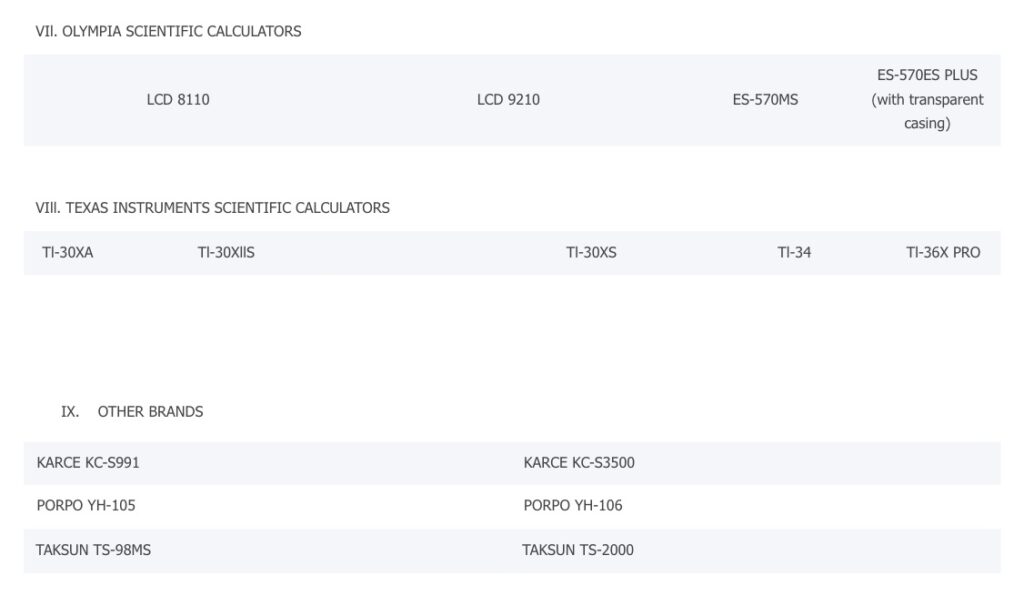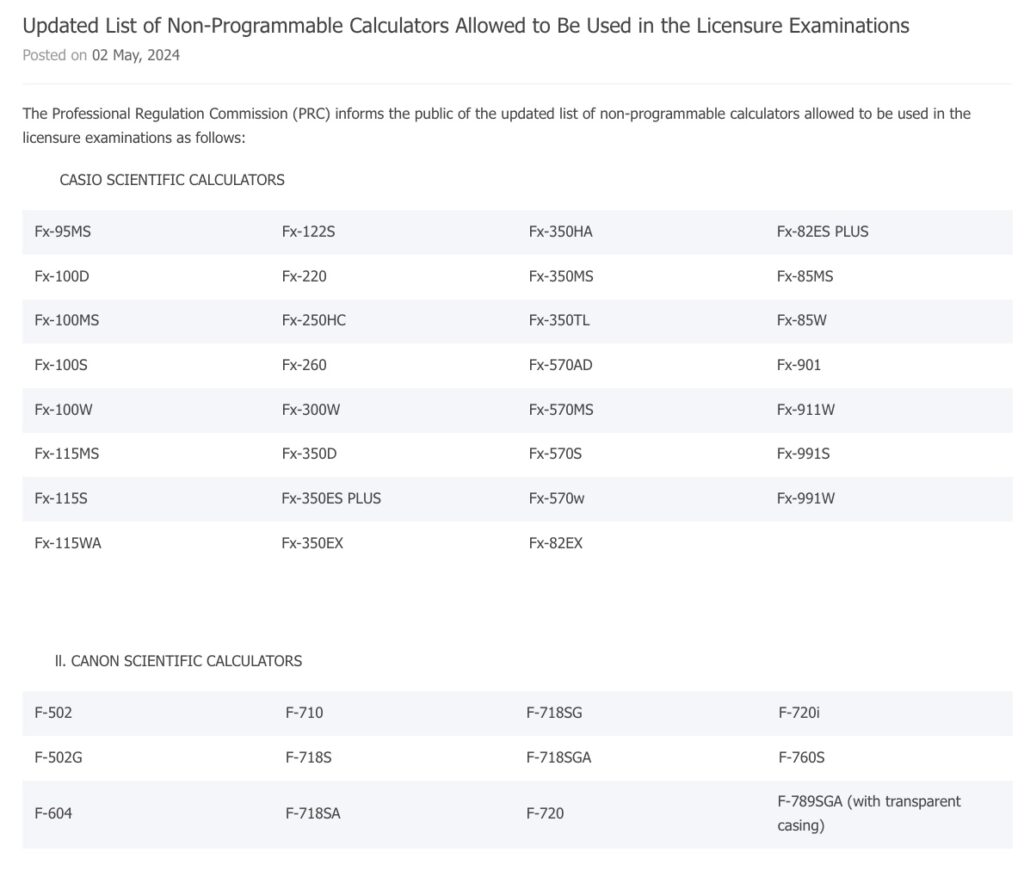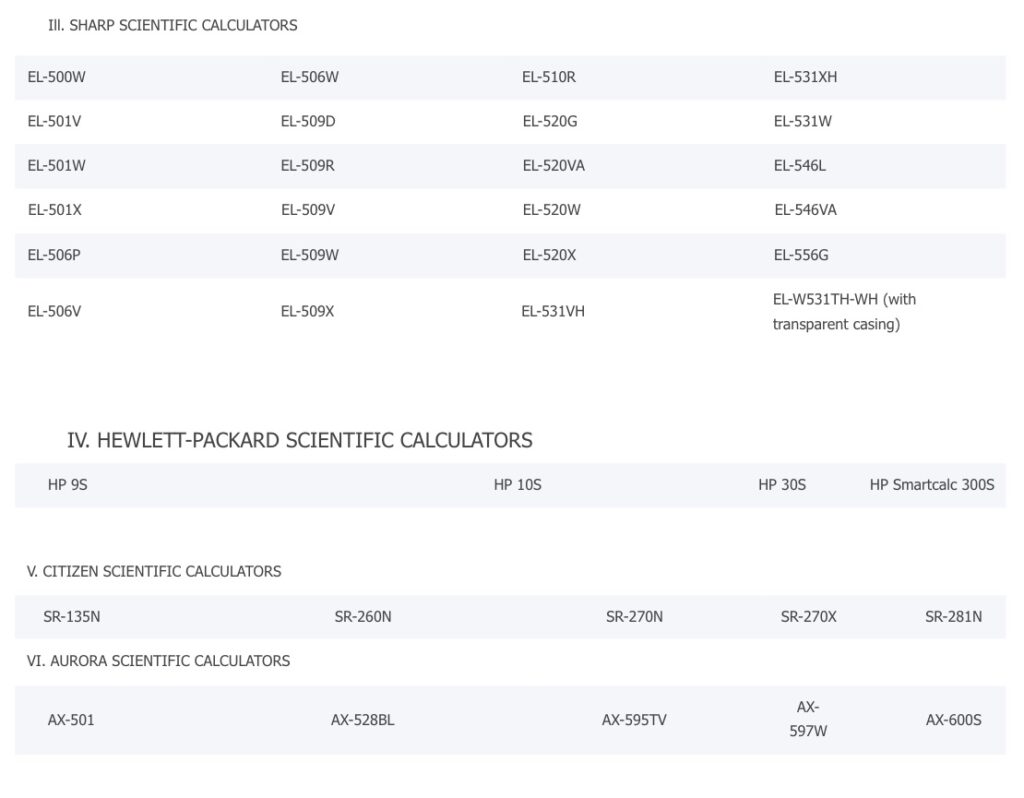The Philippine Regulatory Commission (PRC) has recently issued an updated list of approved non-programmable calculators for licensure examinations. This revision ensures that the list remains current and relevant, reflecting advancements in calculator technology all the while upholding the integrity of professional examinations. The PRC is committed to regularly updating the list to maintain its credibility and reliability for use in licensure examinations and other professional assessments.
According to the PRCs Resolution. 1809 of 2024, “Professional Regulatory Boards (PRBs) that have their own list of allowable [devices] inside the examination room. All calculators should be thoroughly inspected by the examination personnel every examination day.” The publication of the resolution is said to take effect following the Official Gazette’s release of the general circulation and submission of the copy thereof to the Office of the National Administrative Register of the University of the Philippines.

The PRC is responsible for overviewing the requirements that come with the practice of any professional Philippine citizen. Among these requirements comes the tools used during examinations for mathematical or quantitative reasoning.
From this, numerous social media users are voicing their discontent over the recent news, expressing their thoughts on how their trusted calculator models such as the Casio Calculator fx-570 ES are now, in a way, kind of useless. All the while, utilities such as these are not so easy to come by, and for many Filipino citizens, not cheap. Although this move was enlightened by the PRC as its purpose is to curb cheating during examinations and promote integrity in answers.
In regards to the case of it, however, despite the disappointment or even lack thereof, in many Filipino workers who utilize this tool in everyday work, including examination, this measure serves a critical role in upholding the credibility of professional qualifications and certifications bestowed by the PRC. These regulations enable various forms of benefit such as trust among stakeholders and the public in the competency of Filipino professionals, ultimately bolstering the integrity of the workforce and professional standards in the Philippines.
Other POP! stories that you might like:
Singer Querubin Llavore goes viral again, this time due to funny haircut experience
‘Rekindling love’: College sweethearts reunite after 50 years apart
Gmail turns 20!: Thank you, Gmail, for we have these wacky and sweet emails to humor us
New documentary faces backlash due to accusations of AI use and manipulation of ‘true crime’
Catholic priest arrested after allegedly spending church funds on Candy Crush, Mario Kart



